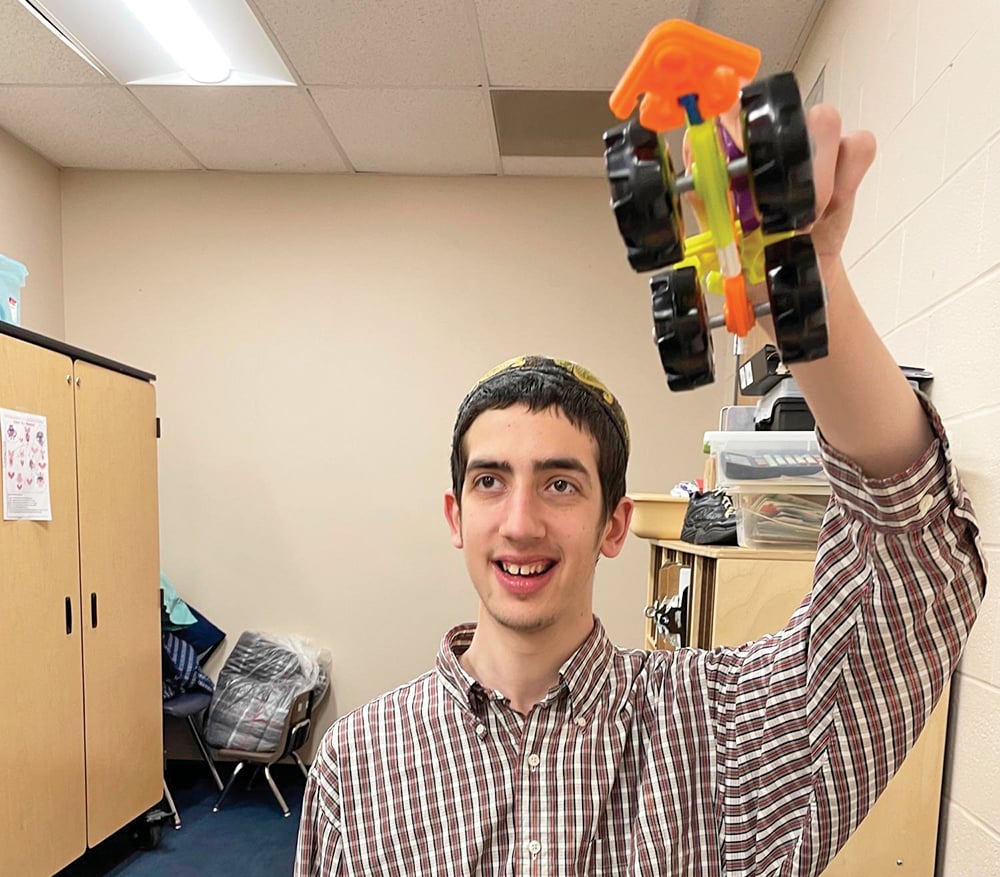
A few weeks ago, Yossi (featured in “A Tzaddik Has Come to the City,” December 19, 2024) was introduced to our readership as being the newcomer to town who couldn’t get enough of giving an exuberant “Good Shabbos” to Shaul.
What was not shared at the time was how Yossi has been asking me questions as to what he can expect from Shaul in return. It has taken time, for sure, but after months of wishing Shaul good Shabbos, Yossi now insists on eye contact from Shaul when the handshake takes place.
Not only has Shaul risen to the task of making eye contact, but he seeks out Yossi and extends his hand to him with a big smile on his face and an endearing “That’s Yossi” on his lips.
This interaction each Shabbos would be enough to make my week. However, this past weekend showed me that being a tzaddik has a way of being contagious.
It was Friday night in shul and all the adults were looking forward to the meal following davening which would end their fast. Shaul was not fasting and was doing his usual scripting (saying lines from a movie or show out loud but to one in particular) while the rest of shul was saying Shemoneh Esrei. Mr. Hirsch, who has been sitting next to Shaul for years, was finished and saw that I was not yet done. “Come Shaul, let’s go see if we can see the moon.” For the next few minutes, shul was quieter as Mr. Hirsch and Shaul took a walk outside.
Mr. Hirsch was fasting. He could have easily continued learning in his seat or even moved locations so he wouldn’t be disturbed. He didn’t even hesitate. He offered right away. But I shouldn’t be surprised—he has been doing this for years. This tzaddik didn’t come to the city—he has been there the whole time.
Then came this past Sunday morning. I was on my way out of a public gathering when another member of our shul, Shlomo Zalman, called out to me. “I wanted to tell you that I really enjoy shaking Shaul’s hand each Friday night.” I smiled, thanked him, and thought he was done when he continued, “I noticed for a long time that there are people whose hands he shakes and there are those he doesn’t. I have been biding my time and wishing him good Shabbos without extending my hand. Recently, I started putting out my hand to see if he would shake it. The last several weeks, he has. His handshake is special—it is what I look forward to all week.”
I will admit—there is something very special about shaking my son’s hand. I sometimes even try to sneak a handshake or a fist bump with him when we are in the car on the way to his favorite store (Shoprite—they sell really good chocolate milk there—just ask Shaul!).
I walked the short remaining distance to my car without really seeing where I was going.
I was overcome with emotion that someone not only sees how special my son is but is willing to make himself vulnerable and verbalize it to me.
What this proved to me, although it was something which I really knew all along, is that there are tzaddikim living among us who recognize when tzidkus is called for. They perform it without needing to be asked, and so subtly that it is easy to miss.
So to amend the title of my previous article, “A Tzaddik Has Come to the City,” perhaps we can say, “The Tzaddikim who walk among us.”
They are truly present—all we need to do is “open our eyes” to see them.
Rabbi Yehuda Minchenberg is a fifth grade rebbe during the school year and teaches Torah at Camp Regesh during the summer. At home, he (together with his wife, Laurie) is the parent of six children, four of whom have varying special needs.









